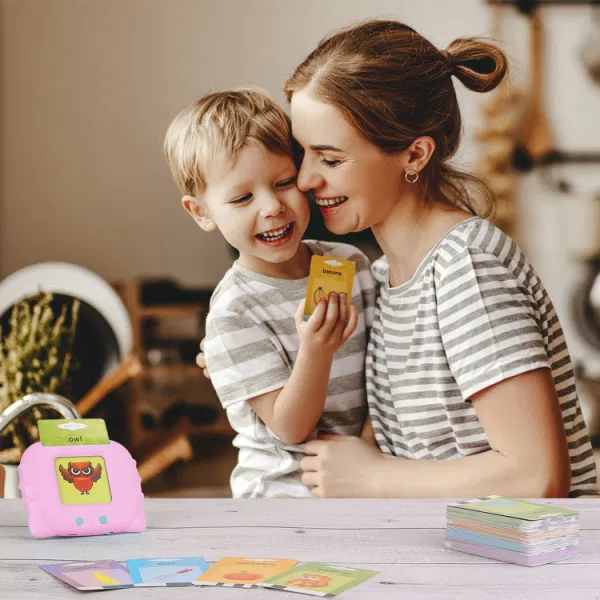I. Understanding Language Development in Toddlers
Language development in toddlers is an incredibly important process that lays the foundation for future communication and learning. It’s essential for parents and caregivers to have a thorough understanding of the milestones and typical language development in toddlers, as well as the factors that may affect their progress. Additionally, early intervention and support for language development can make a significant impact on a child’s overall development.
A. Milestones and typical language development in toddlers
Toddlers typically start to produce their first words around 12-18 months of age. These initial words are often simple and may not be perfectly clear at first, but they signify an important step in the development of language. By the age of two, toddlers begin to combine words into short phrases and start to understand and follow simple instructions. By three years old, most children can form simple sentences and engage in basic conversations.
It’s important for parents to be aware of these milestones and to encourage and support their child’s language development. Providing opportunities for toddlers to practice and expand their language skills through play, conversation, and exposure to new words is crucial for their progress.
B. Factors that may affect a toddler’s language development
There are a variety of factors that can impact a toddler’s language development. These include genetic predispositions, the child’s environment, and their individual temperament. For example, children who are exposed to a rich language environment, with frequent interactions and conversations, are likely to develop stronger language skills compared to those who have limited exposure to language at home.
Additionally, certain medical conditions or hearing impairments can also affect a child’s language development. It’s important for parents and caregivers to be aware of these potential challenges and seek early intervention and support if necessary.
C. Importance of early intervention and support for language development
Early intervention and support for language development can make a significant difference in a child’s overall development. If a toddler is showing delays or difficulties in their language skills, it’s important to seek guidance from a pediatrician or speech-language pathologist. These professionals can provide strategies and interventions to support the child’s language development and help them catch up to their peers.
Additionally, creating a language-rich environment at home can also play a crucial role in supporting a toddler’s language development. By providing ample opportunities for conversation, exposure to new words, and access to books and other language-rich activities, parents can positively impact their child’s language skills.
II. Creating a Language-Rich Environment at Home

A. Encouraging conversations and interactions with your toddler
One of the most effective ways to support a toddler’s language development is to engage in frequent conversations and interactions with them. This can be as simple as narrating daily activities, asking open-ended questions, and responding to your child’s attempts at communication. By engaging in back-and-forth conversations, toddlers are able to practice their language skills and learn new words and concepts.
B. Providing exposure to a variety of words and concepts
In addition to conversations, it’s important for toddlers to be exposed to a wide range of words and concepts. This can be achieved through activities such as reading books, singing songs, and exploring the environment. Exposing toddlers to new words and concepts helps to expand their vocabulary and understanding of the world around them.
C. Using books, songs, and storytelling to foster language development
Books, songs, and storytelling are excellent tools for fostering language development in toddlers. Reading books together not only exposes children to new words and concepts but also promotes a love of reading and learning. Singing songs and reciting nursery rhymes can help toddlers develop their phonological awareness and memory skills. Likewise, storytelling can captivate a child’s imagination and provide opportunities for them to engage in language-rich activities.
III. Engaging in Meaningful Communication with Your Toddler
A. Listening and responding to your toddler’s attempts to communicate
A crucial aspect of fostering language development in toddlers is actively listening and responding to their attempts at communication. This can include acknowledging their gestures, babbling, or any attempts at forming words. By giving your full attention and responding appropriately, you are providing positive reinforcement and encouragement for your toddler to continue developing their language skills.
B. Encouraging turn-taking and back-and-forth interactions
Engaging in turn-taking conversations and back-and-forth interactions with your toddler is an effective way to promote their language development. This can involve asking questions, waiting for their responses, and expanding on their answers. These interactions not only build your child’s language skills but also teach them the fundamentals of communication, such as taking turns and active listening.
C. Using gestures, facial expressions, and visual aids to support communication
Toddlers often rely on visual cues to support their understanding and communication skills. Using gestures, facial expressions, and visual aids can help toddlers grasp the meaning behind words and phrases. For example, pointing to objects, making exaggerated facial expressions, and using hand motions can enhance your toddler’s comprehension and ability to express themselves.
IV. Implementing Strategies to Support Speech and Language Development

A. Modeling clear and correct speech for your toddler
As a parent or caregiver, you serve as a role model for your toddler’s language development. It’s important to model clear and correct speech, emphasizing proper pronunciation and enunciation. By consistently demonstrating effective communication, you are providing your toddler with a strong foundation for developing their own speech and language skills.
B. Encouraging imitation and repetition of sounds and words
Encouraging your toddler to imitate and repeat sounds and words is a valuable strategy for supporting their speech and language development. This can be done through simple games and activities, such as mimicking animal sounds, repeating nursery rhymes, or practicing simple words and phrases. Repetition helps toddlers become familiar with language patterns and strengthens their ability to articulate sounds and words.
C. Introducing simple games and activities that promote language skills
Incorporating games and activities into your toddler’s daily routine can be an engaging way to promote language skills. Simple activities like naming objects, identifying colors and shapes, and playing “I Spy” can help toddlers expand their vocabulary and language comprehension. Additionally, reading books, singing songs, and engaging in pretend play are all effective ways to encourage language development in a fun and interactive manner.
V. Seeking Professional Help and Resources
A. Recognizing signs that may indicate a need for professional evaluation
While it’s common for toddlers to develop language skills at their own pace, there are certain signs that may indicate a need for professional evaluation. These signs can include limited vocabulary, difficulty following instructions, struggles with speech clarity, or challenges in social interaction and play. Additionally, if a toddler’s language development seems significantly delayed compared to their peers, it may be necessary to seek professional help and guidance.
B. Consulting with a speech-language therapist or pediatrician if necessary
If you observe concerning signs in your toddler’s language development, it’s important to consult with a speech-language therapist or pediatrician for a professional evaluation. These specialists can assess your child’s language skills, identify any potential issues, and provide guidance on the appropriate steps to support their development. Early intervention is crucial in addressing any language delays or difficulties, and seeking the expertise of professionals can help tailor the necessary support for your child’s specific needs.
C. Exploring available resources and programs for language development support
Fortunately, there are numerous resources and programs available to support language development in toddlers. From community-based speech therapy services to early intervention programs and educational resources, parents have access to a wealth of support options. It’s important to explore these resources and programs to find the best fit for your child, taking into consideration factors such as expertise, proximity, and the specific needs of your toddler.
In conclusion, recognizing signs that may indicate a need for professional evaluation, consulting with a speech-language therapist or pediatrician, and exploring available resources and programs are essential components of supporting a toddler’s language development. By being proactive in seeking professional help and making use of relevant resources, parents can ensure that their child receives the necessary support to foster their language skills and overall development.



